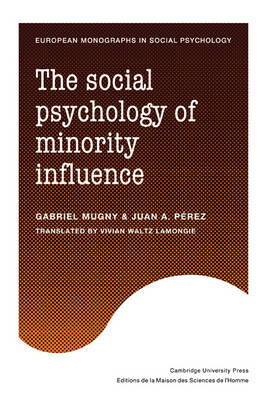European Monographs in Social Psychology
2 total works
Social Representations of Intelligence
by Gabriel Mugny and Felice Carugati
Published 24 November 1989
This innovative study argues convincingly that intelligence is essentially a plural concept, socially and historically determined, and that it can only be fully understood when the socio-psychological foundations of intelligence have been explored. Using a carefully developed questionnaire technique, the authors demonstrate that social representations of intelligence are structured and evolve as a result of a number of socio-cognitive operations interacting with everyday experience to maintain a coherent social universe and an individual identity that is compatible with society's norms and values. From this fresh perspective it is clear that 'intelligence' may be defined differently not only by different societies, but also by different sub-groups in the same society. The authors' findings constitute a challenge to some of our assumptions about intelligence and child development and have clear implications for educational practice. this book will interest educationists and sociologists and allied professionals, as well as social and developmental psychologists.
The Social Psychology of Minority Influence
by Gabriel Mugny and Juan A. Perez
Published 26 July 1991
This book, first published in 1987, looks at the processes and spread of social innovation: the mechanisms of this innovation are rooted in the conflict that minorities are capable of creating in others and introducing into the social system. These innovations give rise to rejection, discrimination and denial of the minority group. However, minority ideas take root and gradually new norms replace the old ones. Despite the denial, therefore, the marginal standpoint of minority groups can have an impact on the belief systems and behaviour patterns of other individuals. This book proposes a psychosociological explanation of these individual and collective phenomena by articulating the underlying identification games and cognitive activities. It throws fresh light not only on minority influence, but also on major themes of social psychology, especially theories of intergroup conflict, persuasion and attitude change. Based upon a series of experiments which have been developed and refined for the 1991 English edition, this is a rigourous and valuable contribution to the study of minority influence on social processes.

